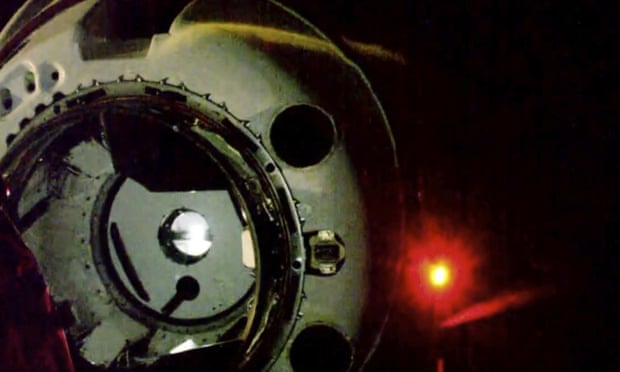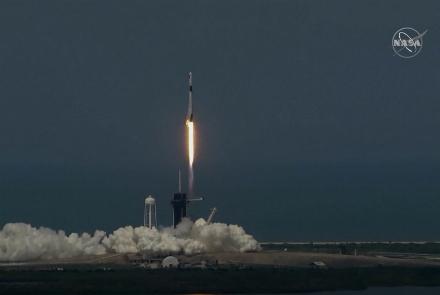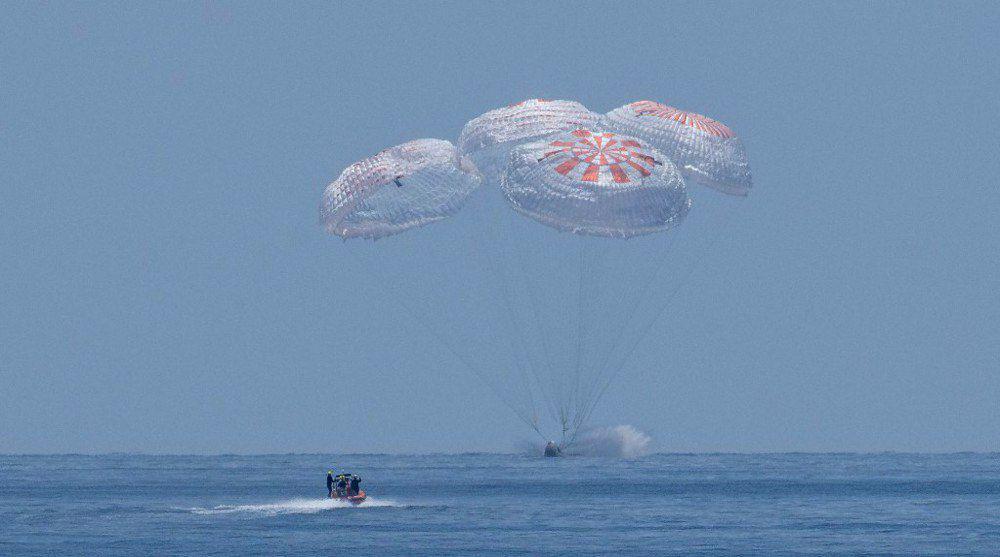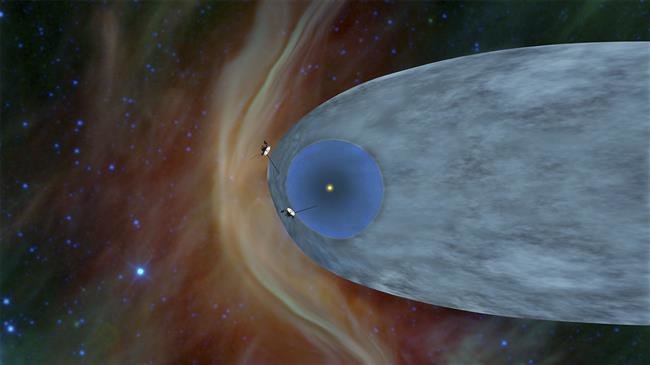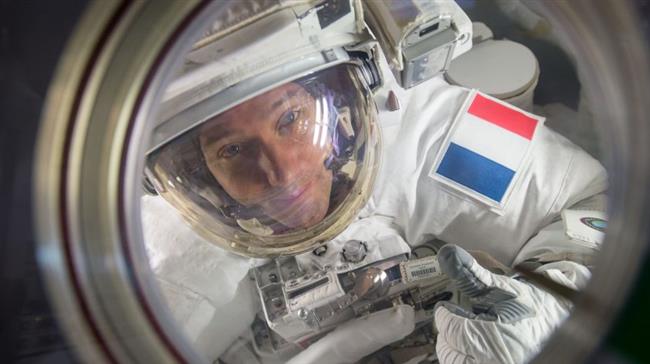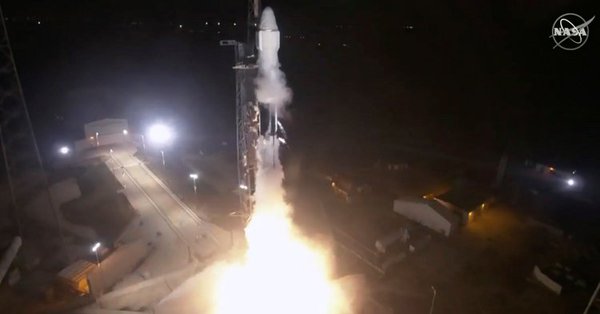SpaceX‘s new crew capsule has arrived at the International Space Station, completing its second milestone in just over a day.
Publish dateSunday 3 March 2019 - 18:47
Story Code : 180693
SpaceX Crew Dragon docks at International Space Station
Capsule is first US-made, designed-for-crew spacecraft to dock in eight years
AVA- No one was onboard the Dragon capsule that launched on Saturday on its first test flight, only an dummy.
The three station astronauts had front-row seats as the vessel docked and became the first US-made, designed-for-crew spacecraft to arrive at the ISS in eight years.
TV cameras on Dragon and the space station provided stunning views of one another throughout the rendezvous.
If the six-day demonstration goes well, SpaceX could launch two astronauts this summer under Nasa’s commercial crew programme.
Both astronauts, Doug Hurley and Bob Behnken, were at SpaceX Mission Control in southern California to observe the docking. They rushed there from Florida after watching the Dragon rocket go into orbit early on Saturday from Nasa’s Kennedy Space Centre.
“Just super-excited to see it,” Behnken said. “Just one more milestone that gets us ready for our flight coming up here.”
SpaceX has sent plenty of cargo Dragons to the space station, but Crew Dragon is a different beast.
It docked autonomously instead of relying on the station’s robot arm for berthing, which is how Behnken said it should work when he and Hurley are onboard. They may push a few buttons and will have the ability to intervene if necessary, he said.
As part of Sunday’s operation, the sISS astronauts sent commands fto Dragon to retreat and move forward again before the capsule made its final approach.
SpaceX employees at company headquarters in Hawthorne, California, cheered as Crew Dragon docked nearly 260 miles above the Pacific, north of New Zealand. They burst into applause again, several minutes later, when the capsule’s latches were tightly secured.
The ISS astronauts offered congratulations to SpaceX as they got ready to open the hatches and collect the supplies onboard Dragon.
The capsule’s lone passenger, a mannequin wearing a white SpaceX spacesuit, was also welcomed onboard. The dummy – or Smarty as SpaceX likes to call it, given all the instrumentation – is named Ripley after the lead character in the Alien films.
Dragon will remain at the space station until Friday, when it undocks and aims for a splashdown in the Atlantic, a few hundred miles off the Florida coast.
Like Ripley, the capsule is rigged with sensors to measure noise, vibration and stresses, and to monitor the life-support, propulsion and other critical systems throughout the flight.
The three station astronauts had front-row seats as the vessel docked and became the first US-made, designed-for-crew spacecraft to arrive at the ISS in eight years.
TV cameras on Dragon and the space station provided stunning views of one another throughout the rendezvous.
If the six-day demonstration goes well, SpaceX could launch two astronauts this summer under Nasa’s commercial crew programme.
Both astronauts, Doug Hurley and Bob Behnken, were at SpaceX Mission Control in southern California to observe the docking. They rushed there from Florida after watching the Dragon rocket go into orbit early on Saturday from Nasa’s Kennedy Space Centre.
“Just super-excited to see it,” Behnken said. “Just one more milestone that gets us ready for our flight coming up here.”
SpaceX has sent plenty of cargo Dragons to the space station, but Crew Dragon is a different beast.
It docked autonomously instead of relying on the station’s robot arm for berthing, which is how Behnken said it should work when he and Hurley are onboard. They may push a few buttons and will have the ability to intervene if necessary, he said.
As part of Sunday’s operation, the sISS astronauts sent commands fto Dragon to retreat and move forward again before the capsule made its final approach.
SpaceX employees at company headquarters in Hawthorne, California, cheered as Crew Dragon docked nearly 260 miles above the Pacific, north of New Zealand. They burst into applause again, several minutes later, when the capsule’s latches were tightly secured.
The ISS astronauts offered congratulations to SpaceX as they got ready to open the hatches and collect the supplies onboard Dragon.
The capsule’s lone passenger, a mannequin wearing a white SpaceX spacesuit, was also welcomed onboard. The dummy – or Smarty as SpaceX likes to call it, given all the instrumentation – is named Ripley after the lead character in the Alien films.
Dragon will remain at the space station until Friday, when it undocks and aims for a splashdown in the Atlantic, a few hundred miles off the Florida coast.
Like Ripley, the capsule is rigged with sensors to measure noise, vibration and stresses, and to monitor the life-support, propulsion and other critical systems throughout the flight.
avapress.net/vdcgyz9qwak9734.5jra.html
Tags
Top hits
